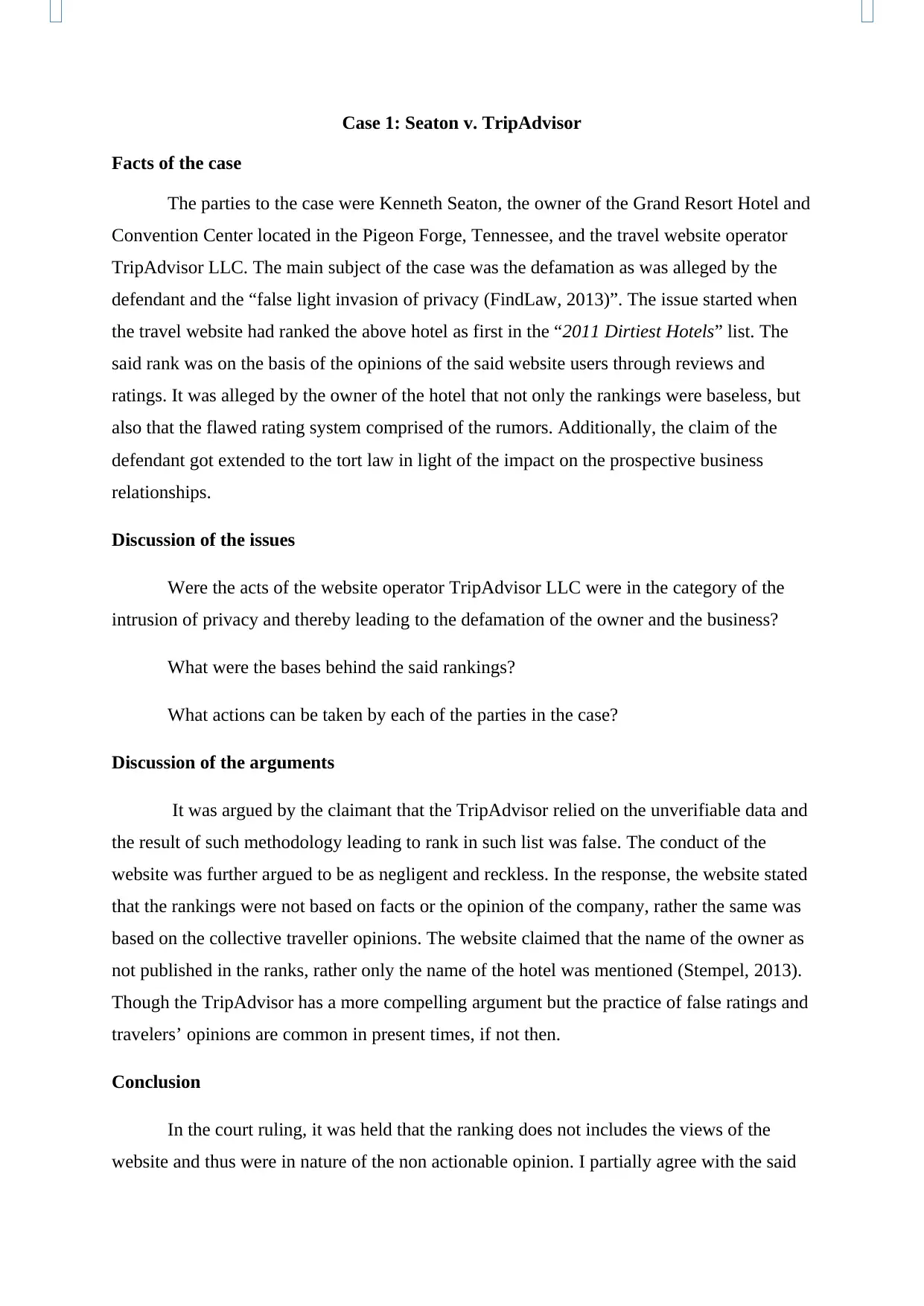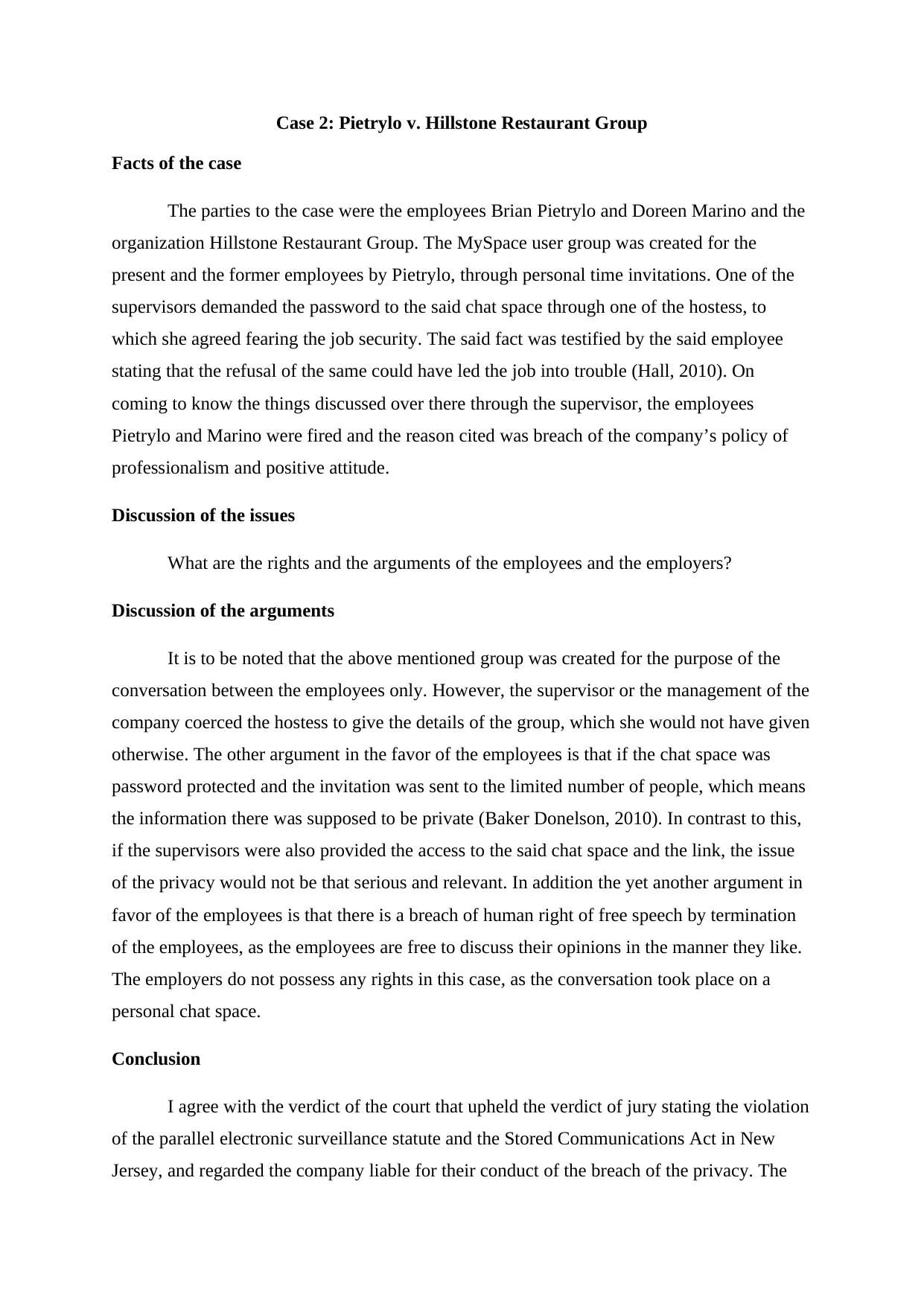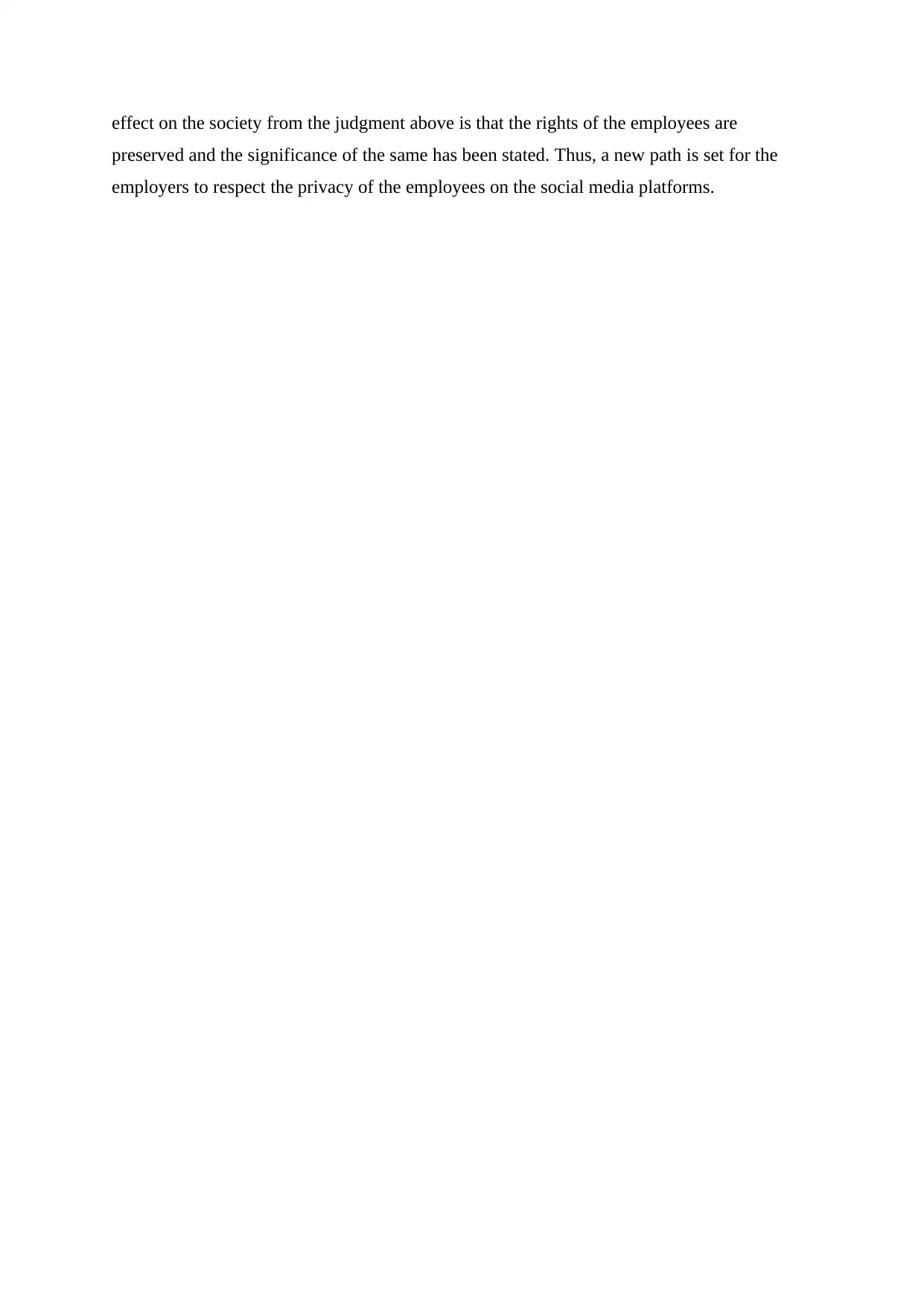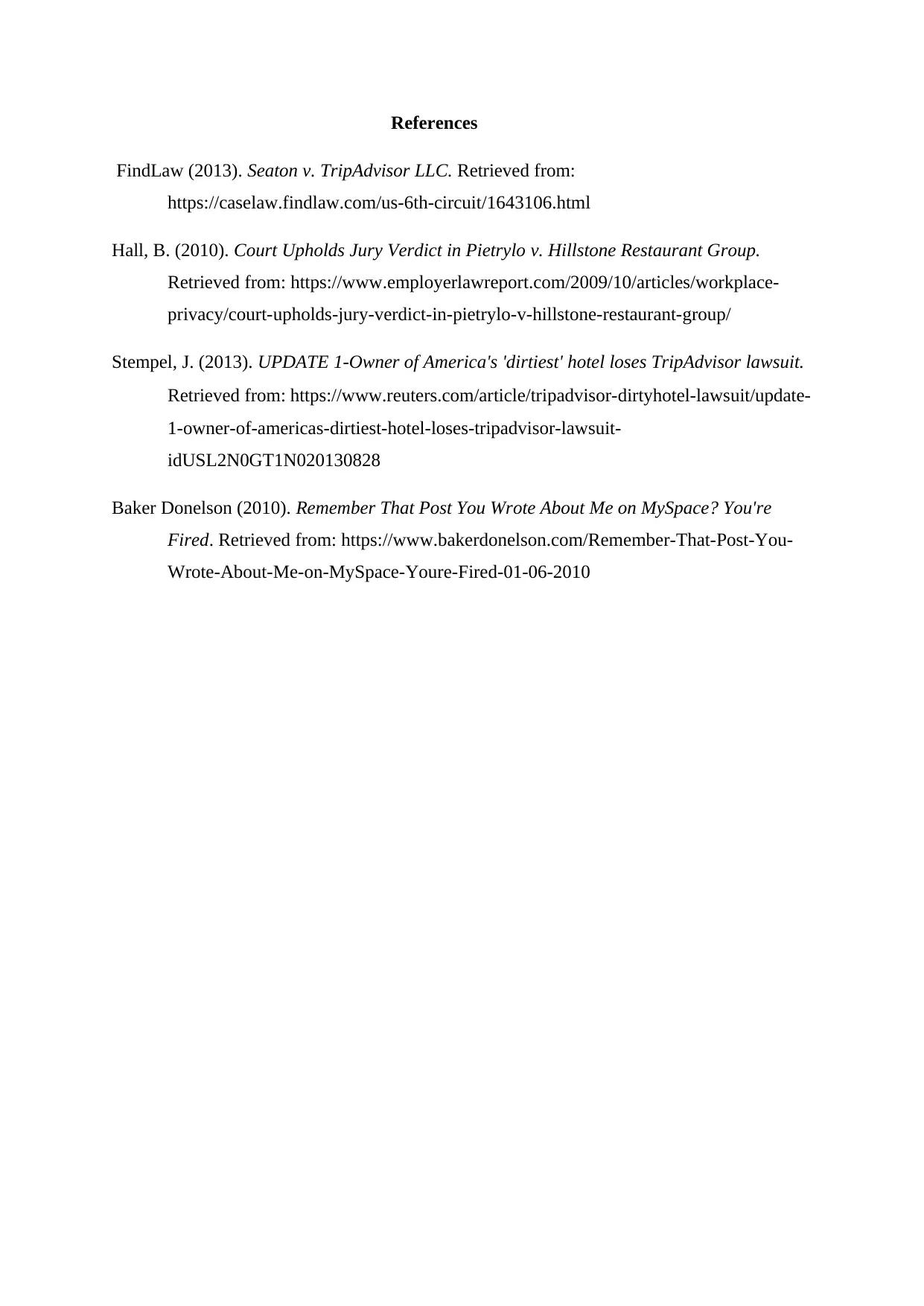BMIS 570 Case Study: Legal Analysis of TripAdvisor and Hillstone Cases
VerifiedAdded on 2022/09/08
|6
|1096
|22
Case Study
AI Summary
This case study analyzes two legal cases: Seaton v. TripAdvisor and Pietrylo v. Hillstone Restaurant Group. In Seaton v. TripAdvisor, the case revolves around defamation and the alleged "false light invasion of privacy" caused by TripAdvisor's ranking of a hotel as "dirtiest." The analysis examines the facts, issues, arguments, and the court's ruling, highlighting the complexities of online reviews and their impact on businesses. The case also delves into the implications of the ruling, particularly in the context of competitive business environments. In Pietrylo v. Hillstone Restaurant Group, the case involves employee privacy and the violation of electronic surveillance statutes. The analysis explores the facts, issues, and arguments related to the creation of a MySpace user group by employees and the employer's access to it. The study considers the rights of both employees and employers, the arguments presented, and the court's decision, emphasizing the importance of employee privacy on social media platforms. The study concludes by presenting the impact of the court's ruling on the society.
1 out of 6








![[object Object]](/_next/static/media/star-bottom.7253800d.svg)